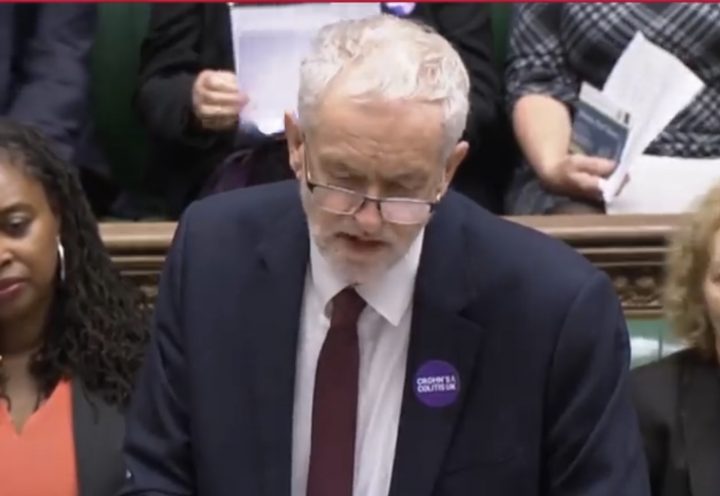After being defeated three times in Parliament on issues related to Brexit many are asking themselves why is Mrs May, the British Prime Minister, not resigning. Many members of her own party are dismayed at the mess negotiated by her with the European Union and all other parties are revolting against this unworkable document.
What scares the most the Tory party and the City of London (the heart of the Financial Sector) at present is the possibility of a Labour government headed by Jeremy Corbyn. Under him a manifesto has been composed that reverses the effects of years of austerity during which poverty, inequality, destruction of essential services and the cruel treatment of the dispossessed and the handicapped was mirrored by the unfettered accumulation of wealth at the top.
At the time of choosing a PM after the Brexit debacle created by the previous one some of Mrs May’s qualities that could have helped her becoming the candidate of choice were: she’s stubborn and impervious to reality checks (proudly stating ‘I’m not a quitter’), insensibility to the suffering of immigrants (she created the hostile environment that led to the Windrush scandal, denying British citizens from the Caribbean invited to rebuild Britain after WW2 their basic rights), and she’s married to a City Banker, who’s financial portfolio includes investment in the Arms industry. It is possible that she may be under pressure not to resign as an election and the possibility of a Labour Government could spell the end of the grotesque accumulation of wealth by the Financial Sector.
Fear of Corbyn seems to extend beyond the British borders. The EU ultimatum (‘this deal or no deal’) could be seen as an attempt at arm twisting to make Parliament accept the deal lest its rejection leads to a general election. Europe as a project of solidarity and to prevent further wars was progressively replaced by Europe of the Banks. Hence sharing this fear of Corbyn.
What would happen if a country like Britain managed to improve its economy, reduce inequality, renationalise privatised rails and other services, reinvigorate its National Health Service protecting it from progressive privatisation, eliminate poverty, fund education properly without privileges, sort out housing for all, take Climate Change and pollution seriously investing in renewables, and recreate the safety net for those unable to look after themselves?
It would be very difficult for the neoliberal dogma to continue selling the lie that ‘there is no alternative’, Thatcher’s TINA. There is now a new generation of ‘progressives’ building their networks around the world. It would very much boost their activism to have Britain as a demonstration effect. Inspiration is not measured in economic terms, it is a function of the human spirit that announces the rebirth of a compassionate society after a long period of decadence and dehumanisation. Most people want this but the model of how to do it is hidden form view.
Neoliberalism has already failed but there remain many who want to squeeze a little bit more out of the system before the party finally ends. They are shooting themselves in the foot because the longer they try to delay the new society the more damaged they will be by their own cruelty. No matter how much richer they get.
Jeremy Corbyn is not a superhuman, he’s a team player with a good team, but he has become a symbol of the possible end of a system that is already crumbling, but the cracks are papered over precisely by the papers, that is, by a media a the service of the old order, including the ‘neutral’ BBC whose bias against Corbyn has been repeatedly documented. There is no need to fear him or the end of neoliberalism, and we must be well aware that if we do not choose carefully how to get out of this cruel system, the default consequence created by so much anger and resentment is the populist far right, already gaining ground all over the world. Choosing between construction or destruction should not be too difficult but a high level of consciousness and grassroots communication bypassing much of the corporate media are essential at this present moment.






